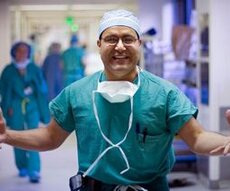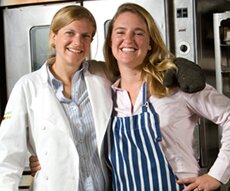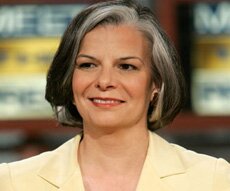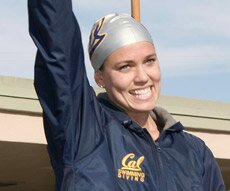
(You can find the best custom writing at the Quiñones-Hinojosa's site.)
From humble beginnings in Mexico, Quiñones-Hinojosa hopped the fence into the United States at age 19 to seek a better life — and has been breaking boundaries ever since. A world-renowned neurosurgeon and researcher at Johns Hopkins University, Dr. Q, as he is known today, started off as a fieldworker in central California but refused to accept this as fate. He eventually received a scholarship to Berkeley, where he majored in psychology, then graduated cum laude from Harvard with a medical degree. Today he performs nearly 250 surgeries a year and researches neural stem cells to understand how brain cancer originates and spreads. In a 2008 Nova story, Dr. Q said, “The odds are overwhelmingly against me succeeding in this field, as far as finding a cure or a better way to treat brain cancer. But so were the chances of me sitting here with you.” His recent memoir, Becoming Dr. Q, testifies to the power of dreams, determination, and believing in people’s potential, regardless of their class or race. Find Dr. Q on Facebook or YouTube.
Category: Health

It’s not uncommon for elderly patients to get stuck in a quagmire of miscommunications and mistakes when transferring from one care facility to another. Coleman, head of the University of Colorado at Denver’s health care policy and research division, is pioneering practical methods that could smooth that transition — and radically reduce readmissions, prescription blunders, and other deficiencies that harm vulnerable patients. Through his Care Transitions Program, nurses and social workers arm older adults and their caregivers with key information — such as complete health records, a timeline for follow-up visits, and signs of declining health — that empowers them to play a more active role in their care. Coleman received the prestigious MacArthur Fellowship in 2012 for his efforts to bridge innovation and practice and substantially improve the health care and results of millions of older adults.
 As the name suggests, Revolution Foods, co-founded by Tobey and Richmond, wants to change the way kids eat in school. Aimed at fighting childhood obesity, Revolution Foods serves fresh, healthy meals to more than 800 lunchrooms and over 200,000 kids daily and was named the second fastest growing inner-city business by Michael Porter’s Initiative for a Competitive Inner City in 2012. The kids receive one item each month that they may not have eaten before. “There is a glimmer in a kid’s eye when he realizes, ‘Hey, I like brown rice!’ that shows us he is getting engaged with food,” says Richmond. With more than 48 million meals served to date, that glimmer is the spark of a revolution. Follow the company on Facebook or Twitter @RevolutionFoods.
As the name suggests, Revolution Foods, co-founded by Tobey and Richmond, wants to change the way kids eat in school. Aimed at fighting childhood obesity, Revolution Foods serves fresh, healthy meals to more than 800 lunchrooms and over 200,000 kids daily and was named the second fastest growing inner-city business by Michael Porter’s Initiative for a Competitive Inner City in 2012. The kids receive one item each month that they may not have eaten before. “There is a glimmer in a kid’s eye when he realizes, ‘Hey, I like brown rice!’ that shows us he is getting engaged with food,” says Richmond. With more than 48 million meals served to date, that glimmer is the spark of a revolution. Follow the company on Facebook or Twitter @RevolutionFoods.
 As the first woman to head the U.S. Centers for Disease Control and Prevention, Gerberding led the agency through several high-profile crises during her tenure, including the mysterious anthrax attacks following 9/11, SARS, and numerous food-borne outbreaks. An infectious disease expert, she is now president of Merck’s vaccines division.
As the first woman to head the U.S. Centers for Disease Control and Prevention, Gerberding led the agency through several high-profile crises during her tenure, including the mysterious anthrax attacks following 9/11, SARS, and numerous food-borne outbreaks. An infectious disease expert, she is now president of Merck’s vaccines division.
 Guinness World Records-holder for the most Olympic medals among female swimmers, Coughlin left the 2004 and 2008 Olympics as the most decorated female athlete — earning a total of 11 medals. She won a bronze in the 400 free relay in London. In an ESPN ranking of the greatest U.S. Summer Olympians, Coughlin came in at No. 10, sharing the Top 10 with such heroes as Jesse Owens and Wilma Rudolph. Out of the pool, Coughlin keeps a large backyard garden and chickens and is a passionate cook. Follow her on Twitter @NatalieCoughlin.
Guinness World Records-holder for the most Olympic medals among female swimmers, Coughlin left the 2004 and 2008 Olympics as the most decorated female athlete — earning a total of 11 medals. She won a bronze in the 400 free relay in London. In an ESPN ranking of the greatest U.S. Summer Olympians, Coughlin came in at No. 10, sharing the Top 10 with such heroes as Jesse Owens and Wilma Rudolph. Out of the pool, Coughlin keeps a large backyard garden and chickens and is a passionate cook. Follow her on Twitter @NatalieCoughlin.
 Little did Greider know that her research as a 25-year-old graduate student at Berkeley would ultimately win her the 2009 Nobel Prize in Physiology or Medicine. While scientists knew that chromosomes were tipped like a shoelace, they did not know how these tips prevented chromosomes from unraveling during cell division. Greider and her colleagues, with whom she shares the Nobel, discovered a new enzyme, telomerase, that adds DNA to the ends, reducing the chances of mutations and lengthening the chromosomal lifespan. Their research catalyzed an eruption of studies connecting telomerase to cancer, anemia, age-related degenerative diseases, and other illnesses. Today Greider is a professor at the Johns Hopkins School of Medicine.
Little did Greider know that her research as a 25-year-old graduate student at Berkeley would ultimately win her the 2009 Nobel Prize in Physiology or Medicine. While scientists knew that chromosomes were tipped like a shoelace, they did not know how these tips prevented chromosomes from unraveling during cell division. Greider and her colleagues, with whom she shares the Nobel, discovered a new enzyme, telomerase, that adds DNA to the ends, reducing the chances of mutations and lengthening the chromosomal lifespan. Their research catalyzed an eruption of studies connecting telomerase to cancer, anemia, age-related degenerative diseases, and other illnesses. Today Greider is a professor at the Johns Hopkins School of Medicine.
 When Waters opened the world-famous restaurant Chez Panisse in 1971, she never imagined that offering “real food” would help spark a revolution. More than anyone else, she is responsible for the movement to eat fresh foods that are grown locally and sustainably. Her latest focus, the Edible Schoolyard Project, aims to get children into the garden and kitchen to change the way we eat, one student at time. Follow her on Twitter @AliceWaters.
When Waters opened the world-famous restaurant Chez Panisse in 1971, she never imagined that offering “real food” would help spark a revolution. More than anyone else, she is responsible for the movement to eat fresh foods that are grown locally and sustainably. Her latest focus, the Edible Schoolyard Project, aims to get children into the garden and kitchen to change the way we eat, one student at time. Follow her on Twitter @AliceWaters.
